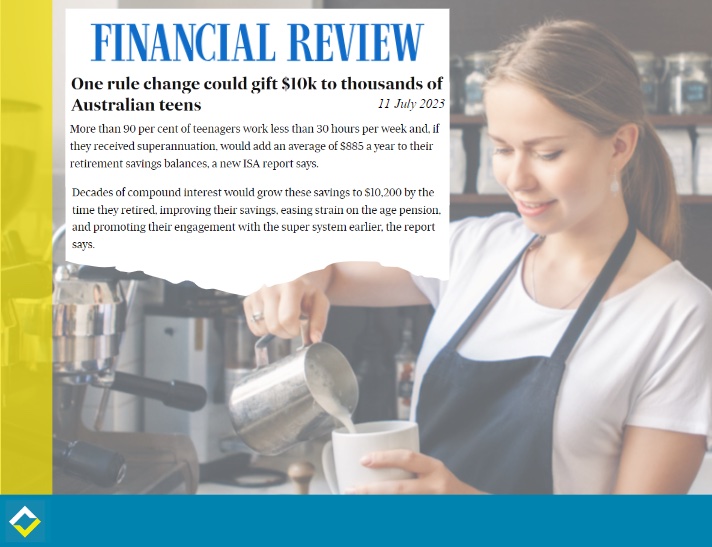Industry Super Australia
A discriminatory legal relic that largely denies under-18-year-old workers’ super contributions could ultimately cost them more than $10,000, a new Industry Super Australia report warns.
Most under-18-year-old workers (about 375,000 people across Australia) are regularly denied super contributions because 90% of them usually work less than 30 hours per week – making them ineligible for super contributions under existing laws. Although they may not work as many hours, ISA’s data shows that young people aren’t just sporadically working for pocket money – with more than half undertaking paid employment all year round. This demonstrates that young people are working to build their savings and meet their outgoings just like other workers; making their discriminatory exclusion from our otherwise universal super system even harder to understand.
When super was introduced in 1992, excluding under-18s was negotiated into the legislation because it was feared fees and insurance would erode smaller super balances. But now fees are capped on lower account balances and insurance is not automatically offered to super members who are under-25 and have a balance of less than $6,000.
By removing the 30-hour threshold for receiving super, the average young worker would get an extra $885 a year in super contributions. After decades of investment returns, this would grow to $10,200 by the time they retire at 67. Ensuring that young people have access to super right from the get-go would also foster more proactive engagement with the super system at an earlier age; building financial literacy and reducing long-term reliance on the tax payer-funded Age Pension.
The continued imposition of a 30-hour threshold also creates an administrative burden for employers who must keep track of the hours under-18s work. An especially complex task for this highly casualised workforce and when employers pay super quarterly.
The community clearly sees these outdated laws for what they are: age-based discrimination. A UMR survey of 1,000 people found that there is near universal support for the payment of super for all workers – with 85% of respondents agreeing with the principle that super should be paid to all workers.
It’s time for politicians to ensure our super system keeps pace with the expectations of our community, and ensure that young people get the super start to work that they deserve.
Read ISA’s report here.











SHARE:
Give young workers the super start they deserve: Expand the Super Guarantee to Under 18’s